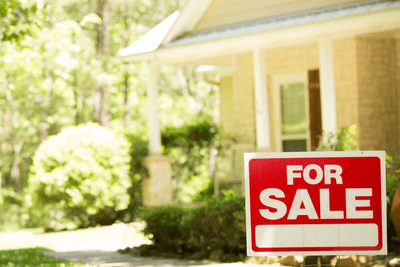
Share
Learn how first home buyers can successfully buy at auction in Australia. Expert tips on preparation, bidding strategies, and avoiding common mistakes that lead to regret.
Buying your first home is one of life’s biggest milestones, but when that dream property is going to auction, the stakes feel even higher. The rapid-fire bidding, the crowd of onlookers, and the knowledge that there’s no cooling-off period can make even the most confident buyer feel overwhelmed.
Yet here’s the thing about property auction first home buyers in 2025: they’re not just competing against seasoned investors anymore. With the right preparation and strategy, Australian property auction tips can help first-time buyers not only compete at auction but actually secure some excellent opportunities. The key is understanding what you’re walking into and being properly prepared for every aspect of the process.
This guide will take you through everything you need to know to approach your first auction with confidence, from the financial groundwork to first time buyer auction strategy that actually works.
Understanding the auction landscape for first home buyers
Property auctions exist for two main reasons: speed and competition. Sellers choose auctions when they want to create urgency around their property and potentially drive the price higher through competitive bidding. For buyers, this means you’re often competing in an emotionally charged environment where decisions need to be made quickly.
The good news for first home buyers in 2025 is that market conditions are more favourable than they’ve been in recent years. Melbourne has become the third most affordable capital city with a median price of $774,093, and experts suggest the first quarter of 2025 represents a sweet spot for buyers before interest rates potentially fall and prices rise again.
However, it’s important to be realistic about the challenges. Recent data shows that 77% of buyers who bought at auction regretted their purchase, compared to only 37% who bought off-market or through private treaty. The main culprits? Overpaying due to emotional bidding and insufficient pre-auction preparation.
This doesn’t mean you should avoid auctions altogether. Instead, it means you need exceptional preparation and auction bidding confidence to succeed.
Financial preparation before you even think about bidding
Your auction success starts long before you raise your hand to bid. The foundation is having your finances completely sorted and understanding exactly what you can afford.
Getting mortgage pre-approval is non-negotiable. This isn’t just about knowing you can borrow money – it’s about understanding your exact borrowing capacity and having that approval locked in before auction day. If you win the bidding, you’ll need to sign contracts immediately with no finance conditions.
Government support schemes that can help
First home buyers in 2025 have access to several government schemes that can significantly reduce deposit requirements:
First Home Guarantee Scheme: Allows eligible buyers to purchase with as little as 5% deposit without paying lenders mortgage insurance. Available for individuals earning up to $125,000 or couples earning up to $200,000, with property price caps varying by state.
Help to Buy Scheme: The new shared equity program allows 2% deposits with the government contributing up to 40% equity for new builds or 30% for existing homes. Income caps are $100,000 for singles and $160,000 for couples, with limited places available.
First Home Super Saver Scheme: Lets you withdraw up to $50,000 of voluntary super contributions to help save for your deposit, with tax advantages along the way.
Setting your budget boundaries
Your budget planning needs to go beyond just the purchase price. Factor in:
- Stamp duty (though many states offer concessions for first home buyers)
- Building pest inspection auction costs
- Legal and conveyancing fees
- Auction deposit requirements (typically 10%)
- Immediate settlement expenses
Most importantly, you need three price points clearly defined:
- Your ideal price (what you’d love to pay)
- Your realistic price (what you expect based on recent sales)
- Your absolute maximum (where you walk away, no exceptions)
That final figure should be based on what you can comfortably afford long-term, not just what the bank will lend you. Remember, 65% of first home buyers in 2025 are spending more than 30% of their income on mortgage repayments, which puts them in mortgage stress territory.
Pre-auction due diligence and research
Unlike private sales, there’s no cooling off period auction purchases. Once the hammer falls, you’re legally committed. This makes your pre-auction research absolutely critical.
Understanding property value
Start by researching recent sales of similar properties in the area. Attend other local auctions to see what prices properties are actually achieving, and ask the selling agent for comparable sales data. Online property platforms provide useful guidance, but nothing beats seeing live auction results in your target area.
Professional inspections are needed
Arrange building and pest inspections well before auction day. Any major issues need to be factored into your bidding strategy since you can’t make the purchase conditional on satisfactory reports.
Have your solicitor review the contract of sale thoroughly. You need to understand exactly what you’re buying, the settlement terms, and what your legal obligations will be.
Practice makes perfect
Attend several auctions in your target area as a spectator before you bid at one yourself. Watch how the auctioneer manages the process, observe different bidding styles, and get comfortable with the pace and atmosphere. This auction vs private treaty comparison will help you understand which method suits your comfort level.
Auction day strategy and tactics
Arrive at the auction at least 30 minutes early. This gives you time to register as a bidder, complete any final paperwork, and settle your nerves. Use this time to observe the crowd and try to identify other serious bidders versus spectators.
Strategic bidding approaches
When it comes to actually bidding, confidence is your most powerful tool. Project certainty and decisiveness, even if you’re feeling nervous inside. Quick, authoritative bidding can intimidate other buyers and prevent the auctioneer from dictating the pace.
Avoid large knockout bids early in the process. These often lead to overpaying and give away information about your budget. Instead, focus on consistent bidding at reasonable increments. When the auctioneer calls for larger increases, you can choose to stick with smaller amounts to slow the pace.
Understanding auction terminology
Vendor bid auction: These are bids made on behalf of the seller before the reserve price auction is reached. They’re completely legal but indicate that the property hasn’t yet reached the seller’s minimum acceptable price.
Reserve price: The minimum amount the seller will accept. Once you hear “the property is on the market” or “selling at market,” you know genuine buyers are driving the price beyond the reserve.
Passed in: When bidding fails to reach the reserve price, the property is withdrawn from auction, and negotiations typically begin with the highest bidder.
Managing emotions and staying disciplined
Auction environments are designed to create excitement and urgency. The crowd, the auctioneer’s patter, and the competitive atmosphere can all conspire to push you beyond your planned budget.
The most successful first-time auction buyers treat the experience like a business transaction rather than an emotional battle. Stick rigidly to your predetermined maximum bid. If someone pushes the price beyond that point, walk away. There will always be other properties.
Having support is crucial. Whether that’s a trusted friend, family member, or professional buyer’s advocate, they can help keep you grounded and may even bid on your behalf if you’re too nervous to participate directly.
Remember that 47% of first home buyers in 2025 paid more than their budget, with some spending an additional $50,000 on top of their planned purchase price. Avoiding property auction regret starts with discipline on auction day.
What happens if you win (or lose)
If you’re the successful bidder, congratulations – but your work isn’t finished. You’ll need to sign the contract of sale immediately and pay the deposit (typically 10% of the purchase price). Make sure your bank transfer limits have been increased beforehand to avoid any embarrassing delays.
The contract will specify a settlement period, usually 30-60 days, during which you’ll need to finalise your mortgage and prepare for settlement. Unlike private sales, you can’t back out or renegotiate after winning at auction.
If the property doesn’t reach its reserve and is “passed in,” the highest bidder typically gets the first opportunity to negotiate with the seller. This can actually be an advantage, as you’ll be negotiating in a less emotionally charged environment where the seller’s expectations become clearer.
Don’t be discouraged if you’re unsuccessful at your first few auctions. Each experience teaches you something valuable about the process and helps you refine your approach for next time.
Alternatives worth exploring
While auctions can offer opportunities for first home buyers, they’re not always the best approach. If you’re uncomfortable with the pressure and uncertainty, private treaty sales allow for more considered decision-making and the possibility of including conditions in your offer.
Pre-auction offers are another option worth exploring. Some sellers will accept offers before the scheduled auction date, particularly if they’re strong and unconditional. This approach lets you avoid the auction altogether while still securing the property.
Working with a buyer’s advocate can level the playing field, especially for first-time buyers. These professionals understand auction dynamics, can bid on your behalf, and often have relationships with selling agents that provide valuable insights.
Regional auction markets tend to be less intense than metropolitan ones, and with government schemes now supporting regional purchases, they’re worth pursuing if you’re flexible about location.
Your checklist for auction success
Before Auction Day:
- Mortgage pre-approval secured
- Deposit funds readily available
- Building and pest inspections completed
- Contract reviewed by solicitor
- Property value research conducted
- Budget limits clearly defined
- Practice auctions attended
On Auction Day:
- Arrive 30 minutes early
- Register to bid
- Observe the competition
- Bid confidently within your limits
- Be prepared to walk away
Your path to auction success
Buying at auction as a first home buyer requires courage, preparation, and discipline. The statistics might seem daunting – with high regret rates and the risk of overpaying – but these outcomes aren’t inevitable. They’re largely the result of inadequate preparation and emotional decision-making.
The first home buyers who succeed at auction are those who do their homework thoroughly, understand their financial limits, and stick to their strategy regardless of what happens on the day. They treat auctions as just another method of property purchase rather than a high-stakes game where they must win at any cost.
Start your preparation early, attend practice auctions, get your finances sorted, and remember that walking away from an overpriced property is often the smartest decision you can make. With the right approach and proper auction bidding confidence, your first auction experience can be the beginning of your successful journey into property ownership.
The key is to remain patient and disciplined. In a market where 78% of first home buyers are using government support schemes, you have more tools at your disposal than ever before. Use them wisely, prepare thoroughly, and approach your first auction with the knowledge that proper preparation beats emotional bidding every time.
Further questions
Do I need a 20% deposit to bid at auction as a first home buyer
What happens if I win an auction but can't get final loan approval
Can I make the auction purchase subject to finance approval
How do I know if I'm bidding against genuine buyers or vendor bids
Should I use a buyer's advocate for my first auction purchase
This is general information only and is subject to change at any given time. Your complete financial situation will need to be assessed before acceptance of any proposal or product.





